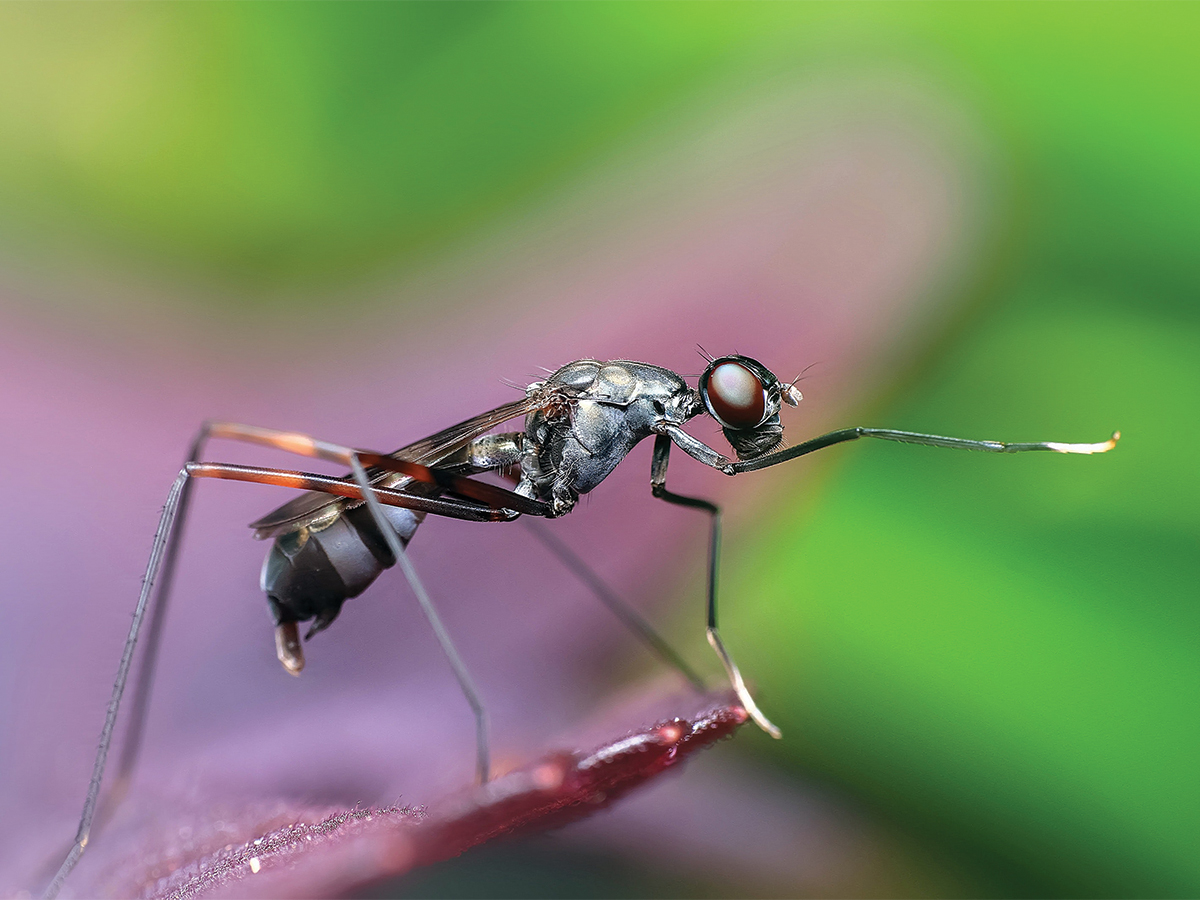On Oct. 1, 2018, Distinguished Professor of Entomology Alexander Raikhel and Lin Ling, a postdoctoral scholar at UCR, published their research on the genetic foundation for chemical receptors responsible for the growth, metabolism and reproduction of Aedes aegypti mosquitoes. Using advanced CRISPR-Cas9 gene-editing, they successfully created mosquitoes that are smaller, have a shorter lifespan and are less likely to transmit diseases such as the Zika virus, yellow fever, West Nile virus and dengue fever, which fatally infects millions each year.
Their research is founded on a lifetime of mosquito investigation as Raikhel, UC presidential chair and National Academy of Sciences member, has personally contributed to over 68 publications regarding mosquito genetic composition and disease transmission. In an interview with the Highlander, Raikhel explained the necessity of collaboration to the scientific process and the unique role mosquitoes have as sources of disease and proliferators of pathogens.
Regarding the collaborative nature of scientific success and application, Raikhel affirmed that “modern science is complex and requires numerous experts to conduct appropriate experiments. Without my talented team of researchers I would not be able to be successful in science.” He goes on to state that “scientific discoveries don’t happen in vacuum, rather the knowledge accumulated as a result of efforts of numerous scientists of previous generations builds a foundation for a next achievement.“
In reference to previous and upcoming generations of collaborators, he cites, “postgraduate researchers, PhD graduate students and a number of outstanding undergraduates” provide the platform on which success is built. This platform is comprised of UCR’s laboratory resources which have aided the researcher. “Since my childhood, I was deeply interested in biology and I feel very fortunate that I could follow my dream. I am happy to perform my research at UCR,” stated Raikhel.
The gene-splicing method, CRISPR-Cas9, has been used for UCR entomological research before, but this time the focus is not on the genetic dissemination of altered mosquitoes, but instead on a specific serotonin receptor, Aa5HT2B, which can be disrupted to stunt mosquito development. The process used by Ling and Raikhel “provided a link between blood feeding and the fat-body–specific serotonin signaling.”
Raikhel’s motivations consist of improving human lives by eliminating serious illnesses, and the researcher has made it his goal to be of benefit to public health by examining insects. “I strongly believe that basic and goal oriented research go hand and hand. We cannot be successful in winning over mosquito-borne diseases without first studying insect vectors such as mosquitoes and then applying this knowledge for developing control approaches,” Raikhel said. He added that “many challenges remain in understanding … why mosquitoes are such incredible disease vectors. We need to elucidate in depth their genetics and physiology, relationship with pathogens. Only this kind of deep knowledge will give us a chance to win over … formidable enemies of humanity. These questions will keep me busy.”
Editor’s note: The photograph used for this article is not of a mosquito, but is actually a Stilt-Legged Fly.








